Tameer Se Taleem
TameerSeTaleem is a Corporate Social Responsibility (CSR) Initiative by the IMARAT Group comprising Graana.com, Agency 21, Propsure Digital Solutions, and Imarat Builders Mall (IBM). The initiative aims to promote the cause of sustainable development and educational empowerment. We aim to make cities resilient and sustainable by condemning the practice of dumping construction leftover material/waste into landfills and promoting the initiative of reusing and recycling them to fill in the lack of resources in underprivileged areas such as schools, shelter homes, public parks, and so on, to uplift underprivileged communities, especially children.
A budding TameerSeTaleem CSR campaign touches on the goals of resilient cities, educational empowerment, and sustainable development
Graana x Animals to make our cities more inclusive and compassionate for animal welfare
City beautification
through artistic truck art highlighting the nation’s cultural hues
Adding colours and expression to bus stop stations to accompany the people as they wait for their commute
Cycling Sundays every month to introduce a healthier and more active outlook to the main cities of Pakistan
Blood drives to support the ailing community and
connect with hearts
Teaser Videos
Problem Statement
1
Rising Construction
Waste
In all construction projects, despite the careful balancing of the cost estimation and bill of quantities (BoQ), some of the construction material is always left behind. The leftover material is either stored which can expire over time or is discarded as waste in a landfill or resold if in usable condition. Moreover, the construction industry is one of the topmost contributors of solid waste materials worldwide in all phases, from raw materials extraction and manufacturing to actual construction or subsequent demolition. It further consumes 50% of raw materials worldwide indicating the extent of its unsustainability. These construction materials are a burden on existing landfills and the surrounding environment.
2
Lack of Construction
Waste Monitoring
In Pakistan, implementation of compliance and monitoring over the landfill areas is lacking behind. Open dumping into landfills is a common practice with grave consequences for the environment. This one-way approach towards construction materials is unsustainable as landfills exacerbate air, land, and water pollution and aggravate the scarcity of raw materials. With an increasing population, rapid urbanization, and slum proliferation, the land becomes scarce with an unregulated consumption of natural resources.
3
Urban decay and
slum proliferation
Urban decay and slum proliferation in Pakistan are a by-product of rapid urbanization, population growth, and rising poverty. The residents in underserved areas live in dilapidated conditions such as non-concrete houses, open sewers, dingy streets, and poor sanitation. These sites are also marked with high volumes of solid wastes and suffer from a shortage of construction/building resources, especially schools, shelter homes, or orphanages in the locality.
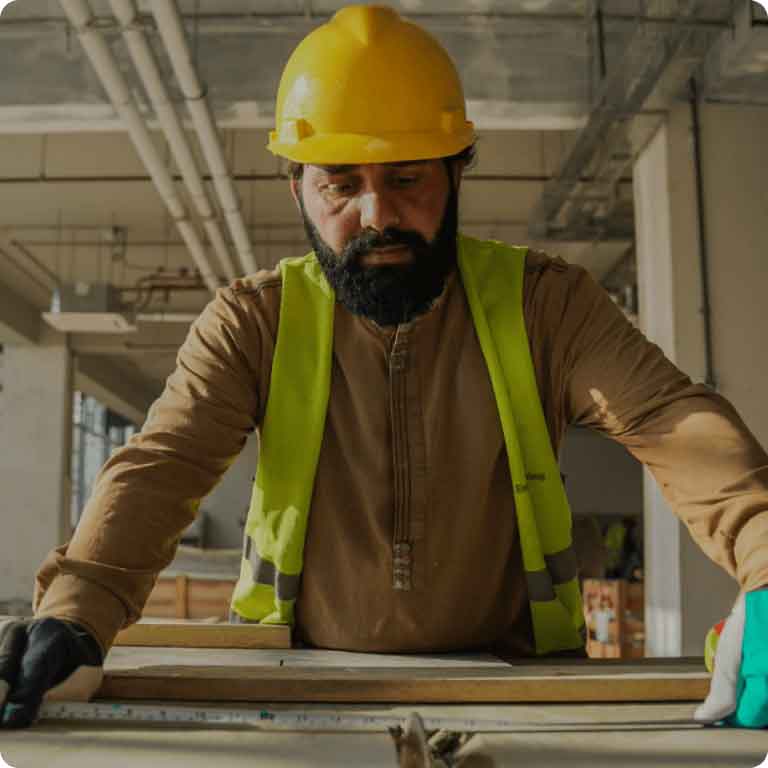
Our Solution
We can reduce and reuse construction waste material by ‘phasing out’ extra construction materials and re-usable waste and redirect them to the betterment of underprivileged communities, especially children, in underserved areas or slums. The material can be reused to fill in the lack of resources in underprivileged areas
- Use leftover construction materials to build schools in slum areas, mend muddy streets, build furniture, or plant tube wells.
- Use leftover material to empower slum developers by cooperating with public authorities to plant treatment workshops near slums where the slum dwellers can treat the waste or reproduce it in different products.
- Use leftover material to create portable shelter homes, bins, or other supporting structures.
What have we done so far
We have kickstarted an initiative by the name of “Tameer Se Taleem” with the main message that:
“Today, if we build the futures of underprivileged children by facilitating schools, tomorrow they will help build the future of our nation.”
Under the first phase of this initiative, we have reused wood waste comprising wooden planks, logs, plies, and sheets, and converted them into furniture for school. For this purpose, we have collaborated with the Baithak School Network run by the Society of Educational Welfare (SEW). The school network often suffers from a shortage of furniture in many of its branches, especially in slums or remote areas.
IMARAT group duly recognized this gap and thus delivered furniture to the Baithak School Branch based in the slum area (Kachi Abadi) of Mehrabadi, located in G-12 sector of Islamabad. Baithak School Network first lit the candle of educating poor children and orphans in literally a “Baithak” (a room) with only one teacher. Today after the compassionate strive of 24 years, it has over 143 schools spread across Pakistan with a total of 18,000 students (boys and girls) enrolled in grades I to V.
The school has produced over 2 million alumni. It is registered with the Federal Board of Education and Private Educational Institutions Regulatory Authority (PEIRA). The school also funds the higher education of out-performing students throughout their academic careers. Understanding the vast applicability of the initiative, IMARAT Group is incorporating further research and avenues, and invites more and more public and private authorities to collaborate and add their part to it. If the rest of the construction sector follows this concept, then the prospect of rehabilitating underserved areas will increase substantially as construction companies donate material unusable for them to resuscitate a largely underdeveloped informal economy.
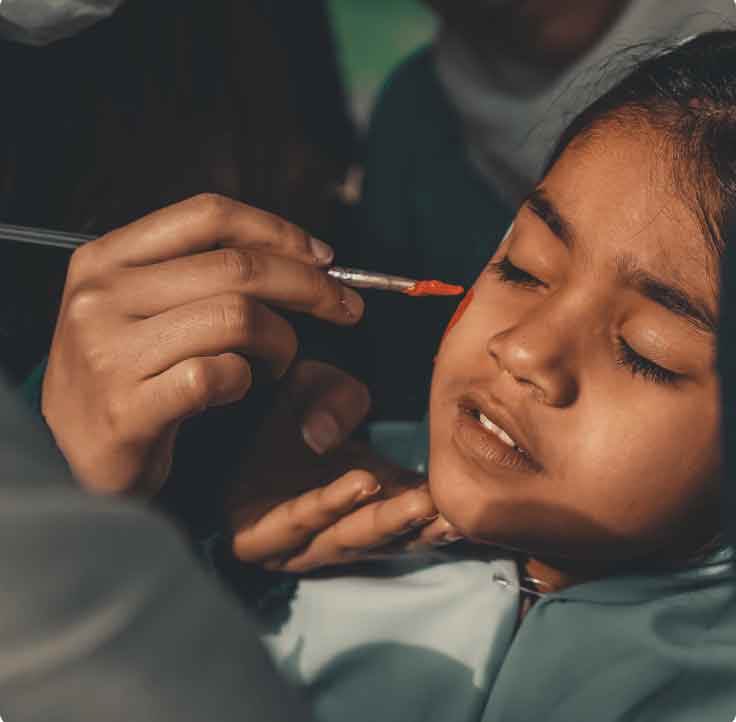

The Big Picture
1 Chair = ∞ Futures
It’s not just one chair but the representation of a generation that circulates on a chair. One chair is the evidence of a nation being built, of youth that learned and studied to become doctors, engineers, entrepreneurs, and much more. It indeed represents the foundation of a nation. It’s resilience, inclusivity, empathy, and passion. It’s hope in the middle of nowhere.
The more we research and innovate this reuse model, the better future we leave for our upcoming generations.
A TameerSeTaleem Chair with the handprints of little children from Baithak School Mehrabadi.
Aims & Objectives
TameerSeTaleem has been initiated with the following long-term and sustainable objectives:
Reduse, Reuse and Recycle
To promote sustainable construction practices by incorporating 3 R’s of Reduce, Reuse, and Recycle by innovating construction waste management in Pakistan’s construction sector.
lack of building resources
To raise awareness about the lack of building resources in slums/underserved areas all across Pakistan and the world.
rehabilitation of underserved areas
To strategically market this campaign nationally and internationally to disseminate the message of reusing construction waste for rehabilitation of underserved areas.
Introduce a Public Policy
To kickstart policy research and introduce a public policy to redirect 5-10% of construction waste and leftover material in all construction projects to underserved areas’ development.
Safeguarding Environment
To promote the role of public, private, and NGO sectors in advocating for the cause of emancipating underprivileged groups and safeguarding environment against rising solid waste.
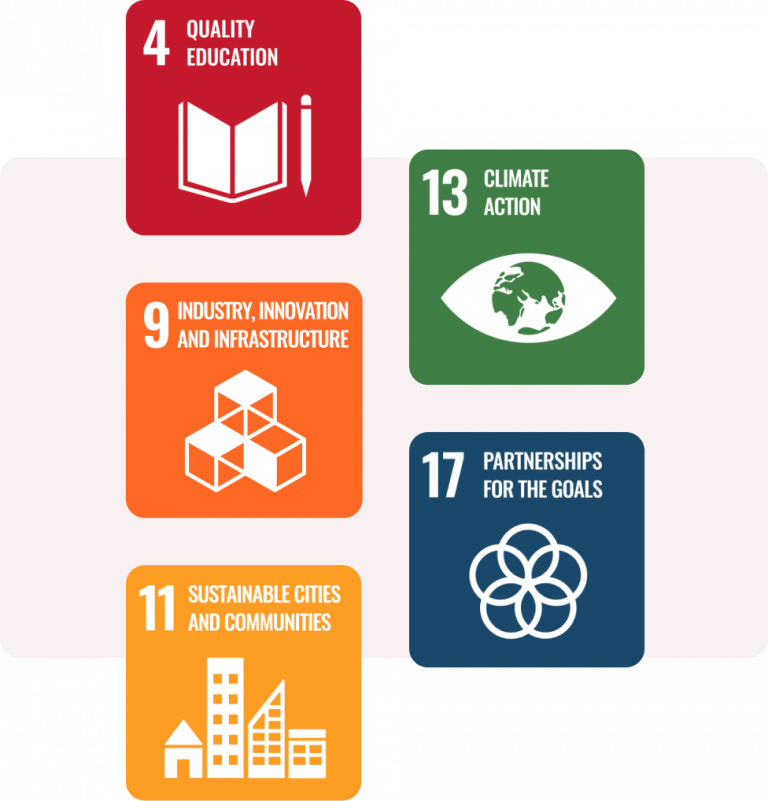
Promotion of SDGS
SDG 4 of ensuring inclusive and equitable education
SDG 9 of building resilient infrastructure, promoting inclusive and sustainable industrialization and fostering innovation
SDG 11 of making cities and human settlements inclusive, safe, resilient and sustainable
SDG 13 of combating climate change and its damaging impacts
SDG 17 of fostering effective partnerships for sustainable development goals’ implementation
Our Partners
What our partners have to say
Testimonials

Shafiq Akber
Chairman IMARAT Group of Companies

Farhan Javed
Group Director, IMARAT Group of Companies

Momina Rizwan
GM Brand Leasing, IMARAT Group of Companies

Ghousia Javed
Cluster Coordinator at Baithak School Network

Umme Kalsum
Teacher at Baithak School Networks

Zoha Javed
Project Lead

Naheed Saif
Principal, Baithak School (Khanapul)
Future Avenues of TST
Playgrounds / Futsal Ground
We aim to build playgrounds in underserved areas or in their vicinity to induce healthier and athletic spark among the underprivileged children and enable promising athletes.
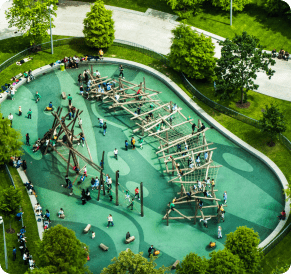
Repainting Schools / Shelter Homes
We painted the donated furniture to Baithak school with grey and white paint instead of wasting it. We aim to reuse our leftover paints and veneers to add colors to the underserved areas by repainting schools, shelter homes, hospitals, orphanages, or other public places that suffer from urban decay.

Cement Vases
We aim to create cement vases through the reuse of excess cement and position them at public parks and commercial centers near underserved areas for their beautification. The vases can incorporate artistic designs, powerful messages, and promote sustainability.
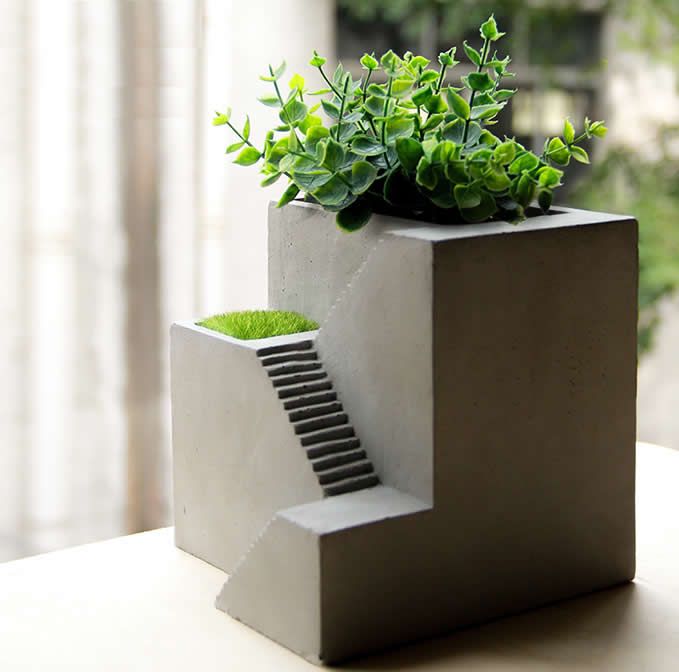
Shelter Homes
We will collaborate with the public and private partners to build shelter homes, fixed or portable. They can be positioned near public places for protection of kids, elderly people, and vulnerable populace from harsh weather conditions.

Donation Centers/Recycling Workshops
In the long-term, donation centers for collection of construction leftover material and reusable waste from industry partners will be established.
Recycling Workshops will also be set up for the conversion of the collected donations into useful products that can be resold or reused for facilitation of underprivileged communities.
The avenues will provide more employment opportunities and skills education for underprivileged communities.

Awareness Blogs
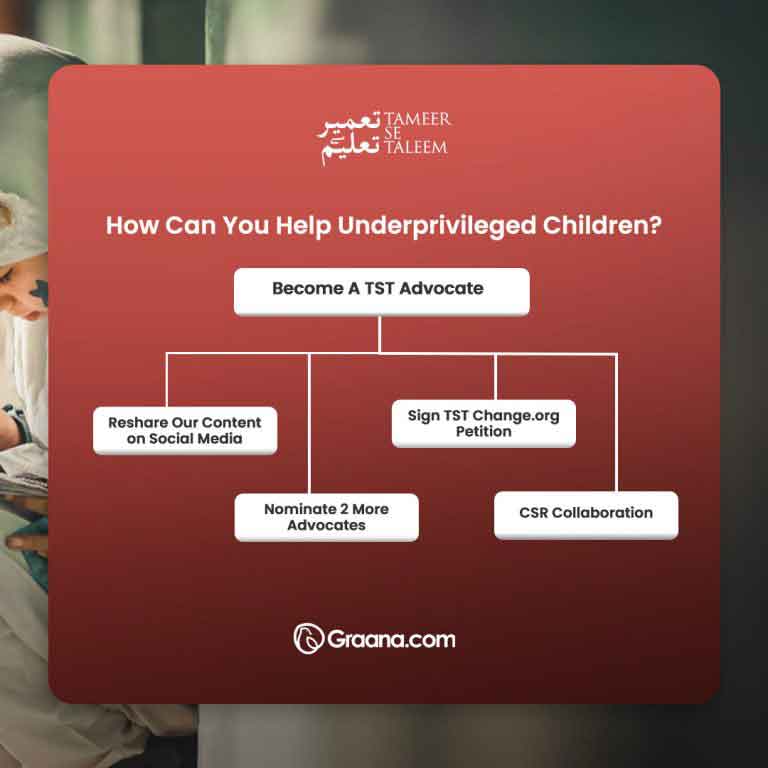
Vote for Tameer Se Taleem
- Necessitates all construction companies to provide building, structural, or facilitative support to underserved schools in the vicinity of their construction sites.
- Formalizes the reuse of excess construction material and waste present at countrywide construction sites.
- Formalizes a proper framework for monitoring construction waste disposal.
- Sets up donation centres for the collection of excess construction material and reusable waste from the construction industry.
- Sets up recycling workshops near underserved communities to convert the donated materials into useful products for schools and as a result, also provide employment opportunities for the populace.
- Promotes partnerships with key stakeholders, NGOs, IGOs, and private entities to promote this initiative across Pakistan and the world.


